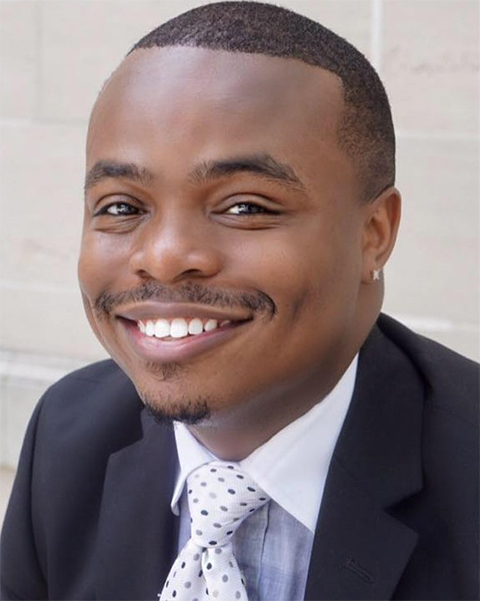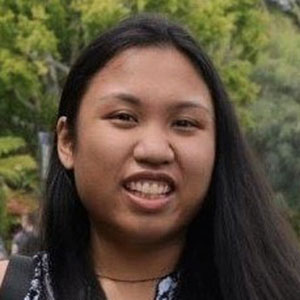Addressing disparities in research and beyond
When Stephen D. Williams did an elementary school project on the solar system, he became fascinated with learning about the different planets and their evolution. “It was that introduction to science that really sparked that inquisitiveness inside of me,” he said.
In high school, Williams learned how cool chemistry could be, including how he could mix different chemicals and what caused things to explode. “That actually sparked my curiosity even further,” he said.

In his undergraduate chemistry classes, Williams was introduced to the study of biochemistry. Understanding how the fields of biology and chemistry can be mixed and learning about biological and biochemical processes in the human body fueled his interest in biomedical science.
“I wanted to understand: What is medicine, how is it controlling your body, and how is the body responding and having these different mechanistic types of effects?” he said.
Williams was particularly interested in medical conditions that affected his family, such as cardiovascular diseases and diabetes.
While working on his Ph.D. in biomedical sciences from Meharry Medical College, Williams’ thesis research introduced him to the field of oncology. In Amos Sakwe’s lab, he studied the role of the protein annexin A6 in the ability of triple-negative breast cancer, or TNBC, cells to alter their metabolism to meet increased energy needs and in their response to targeted therapies that interfere with two growth receptors, epidermal growth factor receptor and androgen receptor. TNBC cells lack two steroid hormone receptors that are common in other breast cancers, estrogen and progesterone, making it harder to treat. It also tends to grow and spread more aggressively than other cancers. This work piqued Williams’ interest, and he continued to study cancer in his postdoctoral fellowship.
Race and cross talk
Williams is now a medical genetics postdoctoral fellow at Baylor College of Medicine in Houston, Texas. He works in Benny Kaipparettu’s lab, where research focuses on breast cancer and breast cancer metabolism. More specifically, the researchers look at how the mitochondria, the powerhouses of the cell, alter their energy metabolism and how the signaling pathways of the mitochondria and the nucleus affect each other.
Metabolic reprogramming, allows cancer cells to overcome energy limitations and adapt to changing environmental conditions as the disease progresses. Also, one mitochondrial cellular process significantly contributes to cancer metastasis. However, researchers do not yet understand the regulation of these processes. Therefore, the researchers in Kaipparettu’s lab want to look at the genetic and metabolic factors that lead to the incidence of breast cancer and what causes high mortality rates in certain cancer types.
Kaipparettu’s lab studies various classifications of breast cancer, and Williams has continued his focus on TNBC. Specifically, he seeks to understand the role of metabolic reprogramming in TNBC metastasis.
Additionally, TNBC disproportionally affects women of color, with higher mortality and incidence rates in Black and Hispanic women than in non-Hispanic White women. Therefore, Williams also wants to look at the genetic and metabolic factors leading to these racial disparities in TNBC patients of color.
Advocating for equity and inclusion
Williams believes in and advocates for gender and racial equity and inclusion in science, technology, engineering, and math. “Everyone has a place, and everyone deserves a voice,” he said. “Everyone should have equal access to the endless career opportunities in STEM, and everyone has an equal responsibility when it comes to promoting and pushing forward the need for minorities in biomedical research.”
Over the years, Williams has served on several committees related to diversity issues, and he has participated in many outreach and extracurricular activities. Since October 2022, he has been a member of the American Society for Biochemistry and Molecular Biology’s Maximizing Access Committee. So far, he has had a great experience with the MAC, he said, and loves working with renowned leaders in diversity, equity, inclusion and accessibility.
Williams is also an educator. Most recently, at Baylor, he teaches molecular and cellular biology to underrepresented postbaccalaureate students in the Human Genome Sequencing Center pregraduate education and training program. Williams advises his students: “Be diligent and be resilient at what it is that you aim to do. Never stop, never give up.”
He also emphasizes the importance of building networks and establishing relationships. “You have to believe in yourself,” he said, “and you have to be committed to achieving those goals.”
In April, his alma mater, Meharry Medical College, named Williams one of the 10 recipients of the 2023 10 Under 10 Awards for distinguished young alumni. This award recognizes Meharry alumni who have graduated within the last decade and had a significant impact on promoting health care and serving their community.
“I’m really pushing forward,” Williams said of the award, “on getting people that look like me, and that look like us from underrepresented populations, seats at these tables and letting them know that they deserve a spot and they deserve access in the same rooms I’m in.”
A future in biopharma
After his postdoc, Williams hopes to continue working in the oncology space but in a biotechnology or biopharmaceutical setting. He is interested in how basic science leads to drug development.
“I want to look at how we take the knowledge that’s applied and applicable at the bench … and get it to the whole drug development and the whole process at the pharma level,” he said. He also wants to look at how biopharma companies approach disparities-related research.
Williams recently started the Scientist Mentoring and Diversity Program as a biotechnology scholar. In this one-year career-mentoring program offered through the International Center for Professional Development, ethnically diverse graduate students and postdoctoral researchers are paired with professionals who work at biotechnology and consumer health care companies. The scholars learn about career opportunities in these industries, receive personalized career mentoring and guidance and attend a major industry conference. Williams said he believes the program will help him accomplish his goals and stay at the forefront of oncology care.
About the Research Spotlight
These articles highlight ASBMB members from diverse backgrounds as a way to inspire up-and-coming scientists to pursue careers in the molecular life sciences. Eligible candidates include Ph.D. students, postdoctoral fellows, new or established faculty and researchers in government and industry. To nominate a colleague for this feature, contact us at asbmbtoday@asbmb.org.
Enjoy reading ASBMB Today?
Become a member to receive the print edition four times a year and the digital edition monthly.
Learn moreFeatured jobs
from the ASBMB career center
Get the latest from ASBMB Today
Enter your email address, and we’ll send you a weekly email with recent articles, interviews and more.
Latest in People
People highlights or most popular articles

Embrace your neurodivergence and flourish in college
This guide offers practical advice on setting yourself up for success — learn how to leverage campus resources, work with professors and embrace your strengths.

Survival tools for a neurodivergent brain in academia
Working in academia is hard, and being neurodivergent makes it harder. Here are a few tools that may help, from a Ph.D. student with ADHD.

Quieting the static: Building inclusive STEM classrooms
Christin Monroe, an assistant professor of chemistry at Landmark College, offers practical tips to help educators make their classrooms more accessible to neurodivergent scientists.

Hidden strengths of an autistic scientist
Navigating the world of scientific research as an autistic scientist comes with unique challenges —microaggressions, communication hurdles and the constant pressure to conform to social norms, postbaccalaureate student Taylor Stolberg writes.

Richard Silverman to speak at ASBMB 2025
Richard Silverman and Melissa Moore are the featured speakers at the ASBMB annual meeting to be held April 12-15 in Chicago.

Women’s History Month: Educating and inspiring generations
Through early classroom experiences, undergraduate education and advanced research training, women leaders are shaping a more inclusive and supportive scientific community.

